Visiting Palmela Portugal
A village of ancient history and wine

About twenty-five miles (or 40 kilometers) south of Lisbon is Palmela Portugal, a village of ancient history and wine. It is believed that Roman soldier and statesman, Aulus Cornelius Palma Frontonianus, founded the town, although there is evidence that the area was settled at least as early as the Neolithic (New Stone Age) times. Throughout the centuries, Palmela was occupied by various cultures including the Romans and later, the Moors.
A brief history lesson.
The area was chosen as a strategic military point due to the hilltop that provided (and still provides) one of the best viewpoints between the Sado and Tagus rivers. Rising nearly 250 meters (or 820 feet) above sea-level, the Moors constructed a solid fortress and castle upon existing Roman foundations for the purpose of protecting these estuaries from potential invaders. The fortress and castle also served as residences and a garrison as evidenced by archaeological excavations beginning in 1992 which revealed many artifacts from the seventh through the twelfth centuries.
In 1147, Palmela was taken from the Moors by the first king of Portugal, Afonso Henriques with the assistance of the Knights of the Order of Santiago de Espada. It was at this time that a church (named the Church of Santiago) and a convent were built and completed in 1482.
The great earthquake of 1755 severely damaged the structures. Modern-day visitors to the castle and church can tour the ruins (no charge). It is believed that the convent was later restored sometime in the eighteenth century.
Now a pousada.
Drive up the steep, winding hill to a common parking area for the castle, church, and convent. The convent, now the Pousada do Castelo de Palmela, is located within the walls of the castle and church.
The building has been restored with comfortable guest rooms constructed from the rooms formerly occupied by cloistered nuns. Many of the rooms have breathtaking views of the village.
The village of Palmela.
The village of Palmela is located within the foothills of the Arrábida mountains. A visitor can walk along steep, narrow, cobbled streets lined with typical Portuguese dwellings. The area is also noted for its wine production and is part of the region collectively known as the Setúbal Peninsula. If you’re traveling by car, you can drive through rural farmland and vineyards along the outskirts of the villages of Palmela and Azeitão. A short drive south of Palmela is the fishing port of Setúbal.
Wines of Palmela.
This Portuguese wine region was founded in 1907 and encompasses the areas of Palmela and Setúbal. Many of the grape varietals are planted in sandy soils with most of the soil being calcareous clay. Summers in Palmela are warm and dry and winters are cold, windy, cloudy, and wet.
Most Palmela red wines are made from a blend of Castelão, a dark-skinned grape, and other varietals. Palmela DOC red blend wines are required by law to contain at least sixty-seven percent Castelão. Other wine varietals produced include Cabernet Sauvignon, Aragonês, Syrah, and Touriga Nacional.
For white wines, the grape varieties are Moscatel de Setúbal and Fernão Pires as well as Arinto, Antão, and Chardonnay.
Festa das Vindimas.
Usually in the first week of September, Palmela has a harvest wine festival known as Festa das Vindimas. This well attended event provides local wine producers with the opportunity to showcase their wines to the public. A traditional street festival by the locals celebrates the harvest.
Wine tasting.
There are several tasting rooms throughout the region. On a recent trip to Palmela, Paul and I were looking for a wine trail map – something like what we’ve seen in the wine regions of California but that doesn’t seem to exist here. We were told the reason there’s nothing like a wine trail map is because the tours are generally conducted by hired tour guides. We were also surprised to learn that most wine tastings are by reservation only. One tasting room, Bacalhoa did provide us with a wine tasting without an appointment, but only because it wasn’t high season or on a weekend. All wineries charge for tastings. Be sure to check the winery website for days and hours of operation. Here is a sampling of some of the wine tasting rooms in the Palmela/ Setúbal area:
Bacalhoa (another location is next to Buddha Eden Garden near Obidos).
If you visit:
I recommend that you drive a car to Palmela unless you’re planning on hiring a tour guide to visit wine tasting rooms or other area attractions.
Accommodations:
We stayed at the Pousada do Castelo de Palmela. Formerly a convent, this pousada has been restored, keeping much of the authenticity of the convent while providing modern amenities.
Doorways to the pousada guest rooms are short, so if you’re a taller person, you’ll have to duck your head to enter the room. Once inside the room, the ceilings are very high.

The pousada has a bar and restaurant on site. The restaurant sits within the cloistered hallways with views of the courtyard and in warm weather, you can dine outside.
This facility is not handicap accessible.
Parking is available but is shared with visitors to the castle and church.
Things to do and see.
In addition to the wineries, there are other interesting things to do and see in this area.
A short walk from the pousada in the same parking lot, are the ruins of the castle and the church. It is free to enter the main church and the castle ruins. You can view ancient artifacts found in the castle and the church. Walk along the outside castle walls to see panoramic views of the region. In tourist season, there is a casual restaurant and shops at the foot of the castle.
The village of Palmela is an interesting mix of traditional Portuguese architecture. Use caution if driving as many of the roads are narrow. If you’re walking, be prepared to hike up some steep hills.
The Serra da Arrábida and Sado Estuary is a nature lovers paradise. This website provides additional information.
Setúbal is famous for its fresh fish. There are several good restaurants in this city as well as cafes and shops. There is ample public parking lots in the area (paid). Ignore the “parking lot hawkers” who appear to be assisting you with finding a parking spot but only want a handout. This website provides additional information on the area.
Places for lunch or dinner.
There are several good restaurants for lunch or dinner. Here are three that we can recommend based on our own experience:
Chef Stories – Located in Azeitão – about 20 minutes from Palmela. This restaurant serves lunch and dinner. Its primary focus is on meats – beef, pork, chicken but there are a few non-meat dishes. Contemporary atmosphere. Good selection of wines. Excellent service and presentation. Private parking lot for customers.
Culto Café – Located at the bottom of the hill from the Pousada. Casual lunch, dinner, snack, or cocktails. Super contemporary atmosphere. Great patio with panoramic views. On street parking.

Restaurant Pousada Castelo Palmela – The pousada restaurant offers breakfast (for guests), lunch and dinner. Elegant atmosphere with indoor or outdoor seating (during the good weather). Excellent service and delicious Portuguese food.
Other tips.
If you’re not into wine tasting but just want to relax with a glass of wine, try Wine Love in Palmela.
Portugal has tough drinking and driving laws so if you’re planning on doing several wine tastings, consider hiring an Uber, Bolt, taxi, or a tour guide to drive you around.
Most of the wine tasting rooms have a wine store if you just want to purchase some wine to take home with you.
Thank you for reading Our Portugal Journey. This blog is a subscriber supported publication but has no paywall – in other words, you can subscribe for free and receive all the content. However, if you find my content valuable, please consider becoming a Supporting Subscriber for a nominal fee either on a monthly or annual basis right here. Just want to buy me a glass of wine? You can do that here.
Until next time…
Obrigada!
Carol.



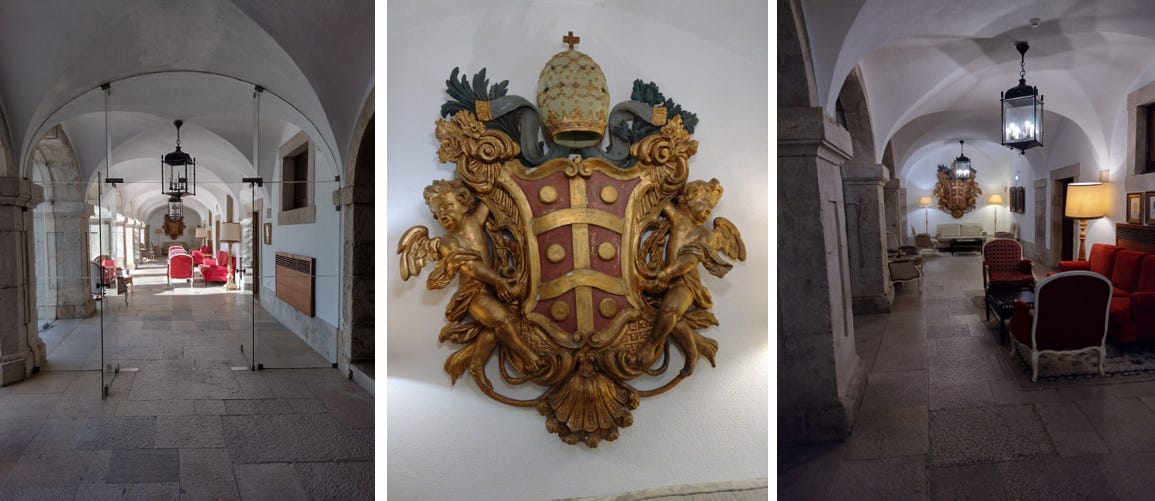
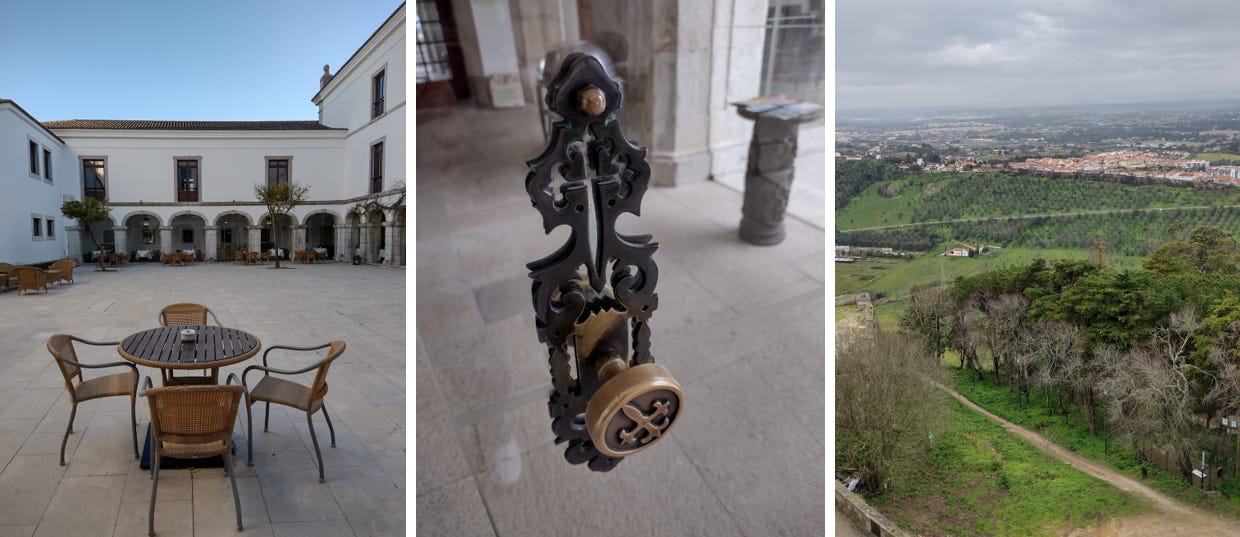
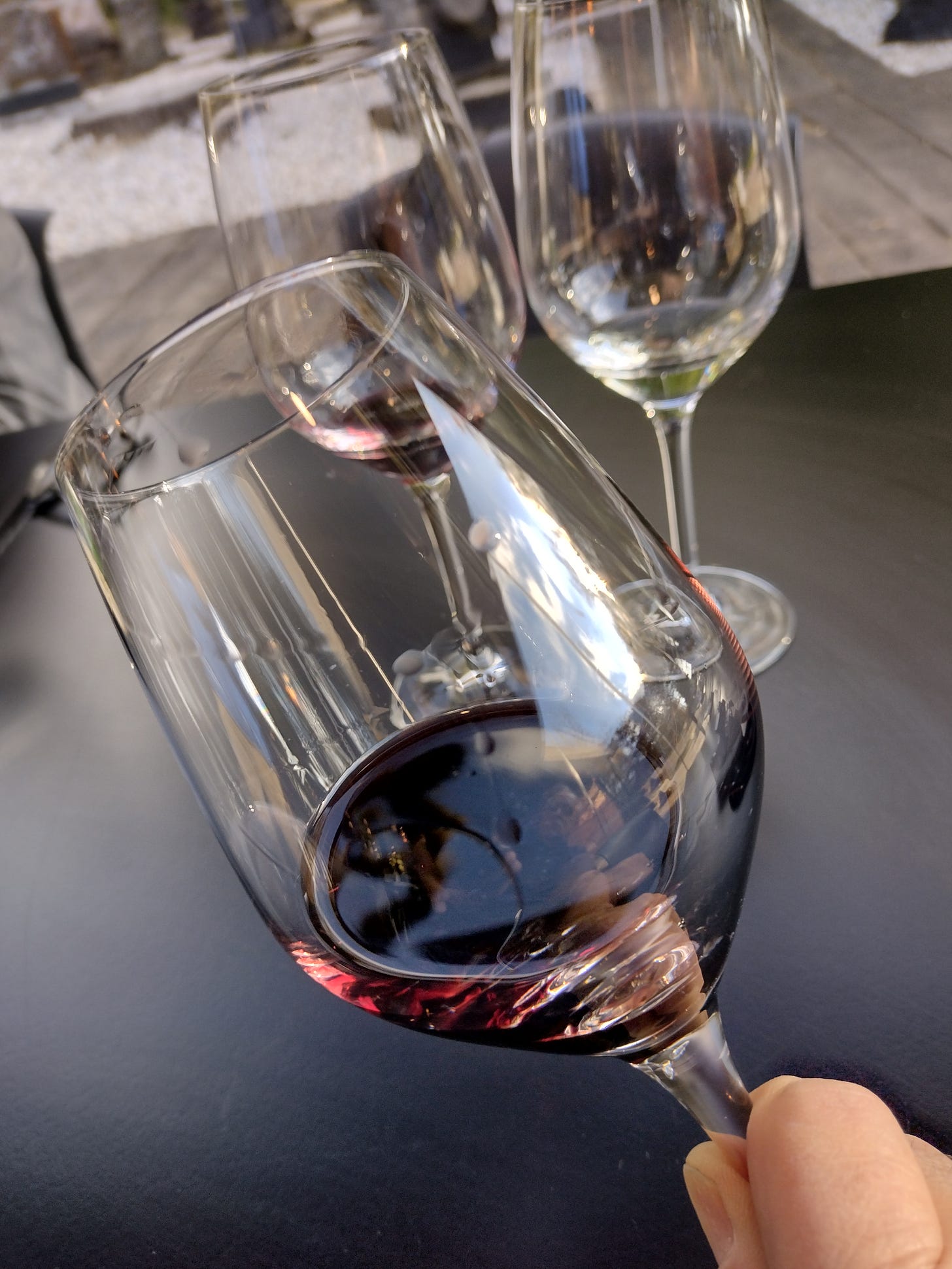



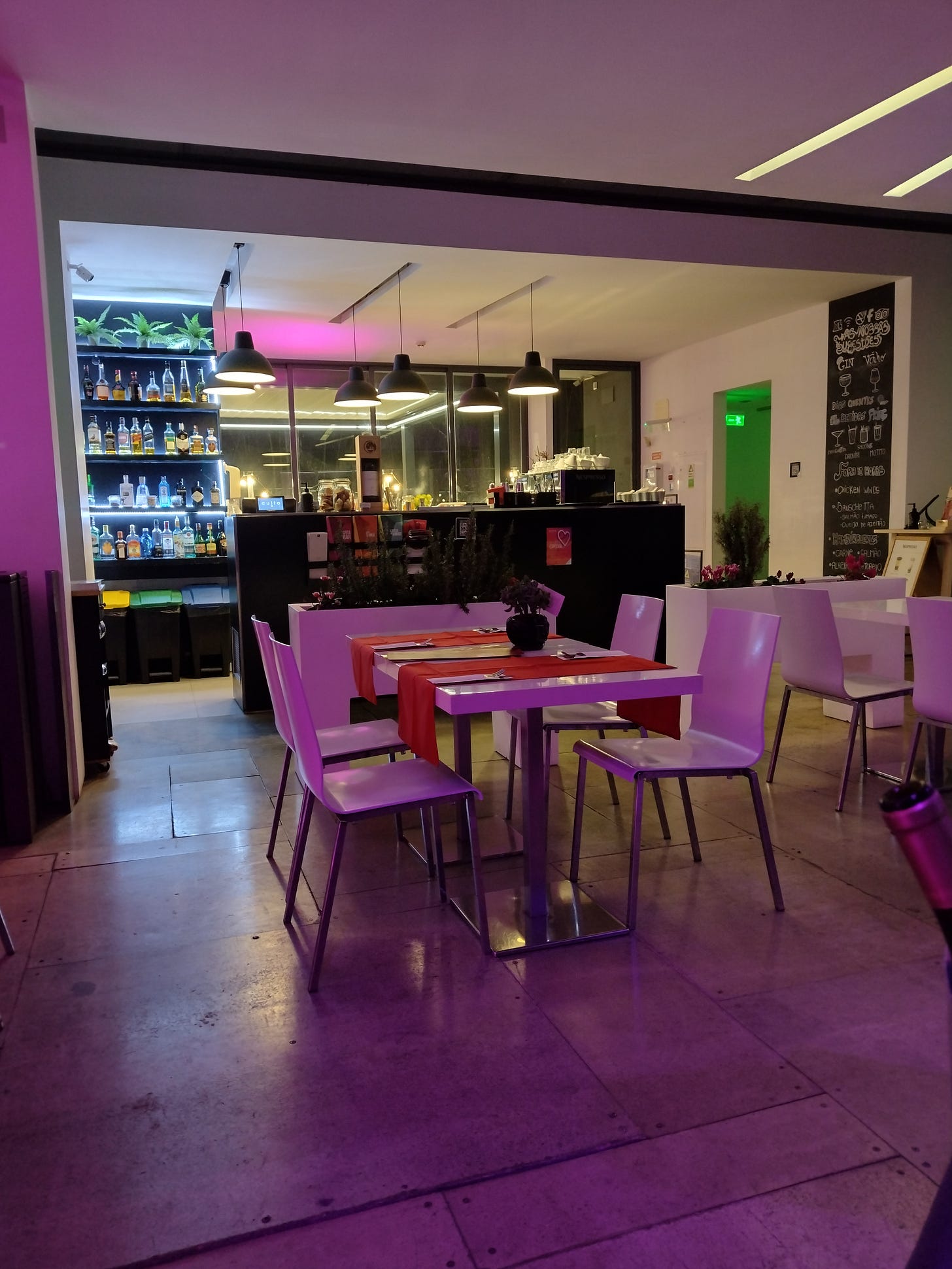
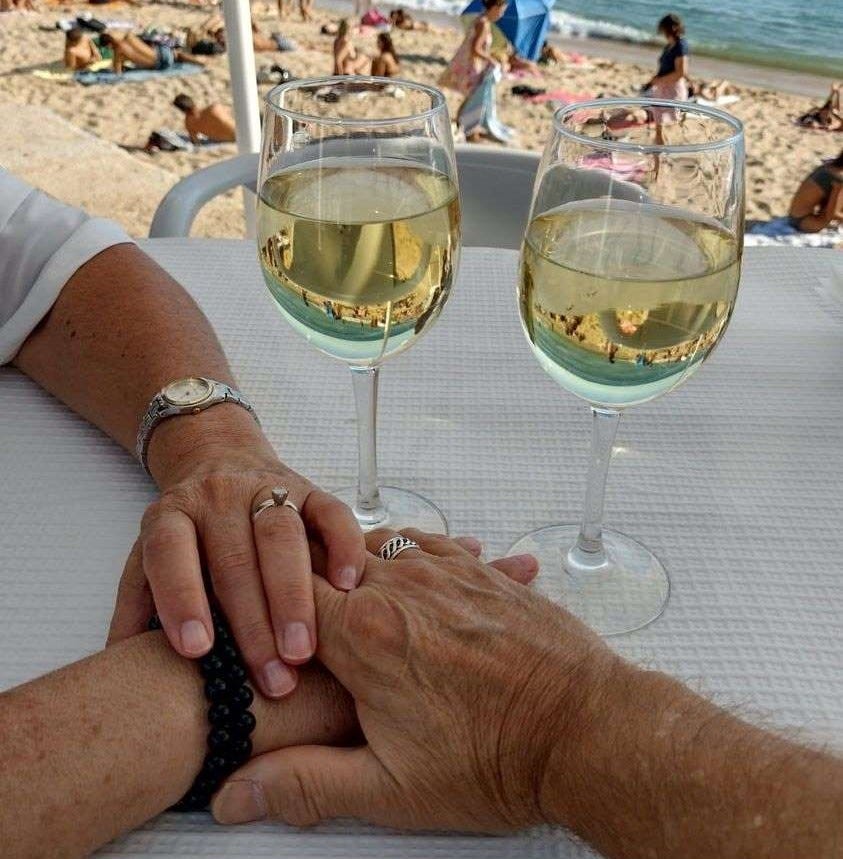
The pousada looks absolutely gorgeous!
We're definitely going to follow your visit ourselves! Have been to Palmela and some of the wineries you mention but you've motivated us to stay at the Pousada and try all your recommendations. Thanks, and we'll book using your links.